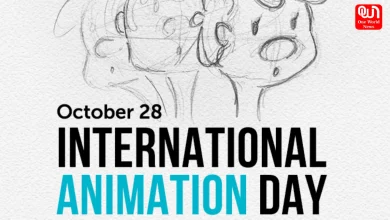Constructive criticism is always better than a fake compliment!

Criticism is always constructive not destructive: It’s just a game of perception!
When did you last time receive a compliment? Do you remember and do you remember an instance when you were criticized by someone? Undoubtedly, when you received the compliment, you felt good – and when you received the criticism, you felt upset and wanted to reject it. We don’t like people who criticize us, right? Well, there is nothing to worry here. Everyone reacts negatively towards their critics. After all, this is human nature. It is very obvious that we do not want to be seen as failures, so we had rather shut our eyes and cover our ears than have to take any criticisms from others. However, here is the biggest challenge comes on our way that we human do not happily accept our criticisms. Without receiving negative feedback and criticisms from others, our growth and opportunities become stunted. And in the long term, we are not only liable to fail – but to fail badly.
Excessive praise can lead to lack of motivation!
A very few of us believe that criticism is much better than fake compliments. Let us explain you this through an example.
Paint a picture in your mind that praise is a type of healthy food. Now, no one would argue that healthy nutrition is a bad thing. However, what is good for you in small or measured dosages can be bad for you if you take too much of it. You may be surprised to hear this even applies to your water consumption and your fruit consumption too. Clearly, too much food or drink – no matter how healthy they may be – can make us ill. For optimum health, we need a balanced intake of healthy food and drink. In short, we need to take balanced diet.
This phenomenon goes same with the compliments. Receiving them from time-to-time is a good thing, but if they are all you ever hear, then they are likely to have a negative impact on your ability to achieve things in life. Excessive compliments take us away from our original motivation of simply enjoying an activity. We start doing the activity purely for the sake of receiving ego-satisfying praise.

Criticism stimulates the growth!
That’s right! Criticism actually enhances one’s productivity. Just to be clear, we are not talking about trolls or abusive comments here. We are talking about constructive criticism, which are often refereed as ‘healthy criticism’. Feedbacks that can help you to become stronger. This type of feedback forces you to evaluate your actions and the way you work. If you use constructive criticism wisely, it can guide you away from bad practices and move you towards good ones.
The right kind of criticism is honest feedback that will benefit you. Never take your critics in a wrong way. Always remember your biggest critics are your biggest well-wishers.
“I was an average student during my school time. My parents were not that much sure about my marks so they kept lot of backup options for me. But I took all their critics as a challenge. I was fully motivated from their comments and I scored 95% in 12th class and now I am pursuing Psychology Honors from Delhi University”, says Rashmeet Kaur
Experience the power of criticism
Now that you are familiar with the benefits of constructive criticism, let’s delve into several ways that you can use it to boost your productivity and success in life.
Criticisms are more action oriented. For example, imagine you are learning to play guitar, and in your first public performance your tutor says: “You did well.” Now, while these might be welcome words to your ears, they are not as useful in helping you improve as: “Your timing needs some work.” With this piece of advice, you have specific guidance on how to quickly improve your performance skills. (You might need to spend hours playing alongside a metronome.)
Actively seek criticism by asking for feedback.
This could be in the form of a question. Continuing the guitar playing example, you might ask your tutor (or other people who heard your performance): “What could I have done better?” You could also ask very specific questions. For instance: “Did my playing in the introduction sound in tune?” Let’s be honest, most people do not know how to give feedback – they typically offer vague comments filled with emotions. By asking specific questions, you will gain valuable feedback that will help you learn and develop quickly.
However, asking questions should also be to gain useful feedback, not to show you have doubts about your abilities and skills. Take criticism with patience
Patience is all you should have. This is how to take criticism patiently:
• Be quiet and listen. Try to listen to as many perspectives as possible to get a full picture and more points of view.
• Ask clarifying questions. Aim to understand what the other person means when they criticize you. Do not make an initial judgment that they are wrong. Understand first, and then start to process their opinions.
• Ask for suggestions to improve, but always refer back to your goals. After clarifying the problem, seek for suggestions, but do not just try to satisfy others’ needs. Instead, refer back to your goals to see how improvements can align with your original intentions.
• Take control of the process. Pick the right person. Typically, this would be someone who is honest, impartial but wants the best for you.
Feedback is really important!
Speed is also important when it comes to receiving feedback. The sooner you get feedback from others, the faster you will know what to improve before going ahead with your plans or work. For example, if you are planning on setting up your own business, ask some interested friends to provide feedback on your ideas. Does this before you launch your business, and you will save yourself valuable time learning the long and hard way.
Have a news story, an interesting write-up or simply a suggestion? Write to us at info@oneworldnews.in







